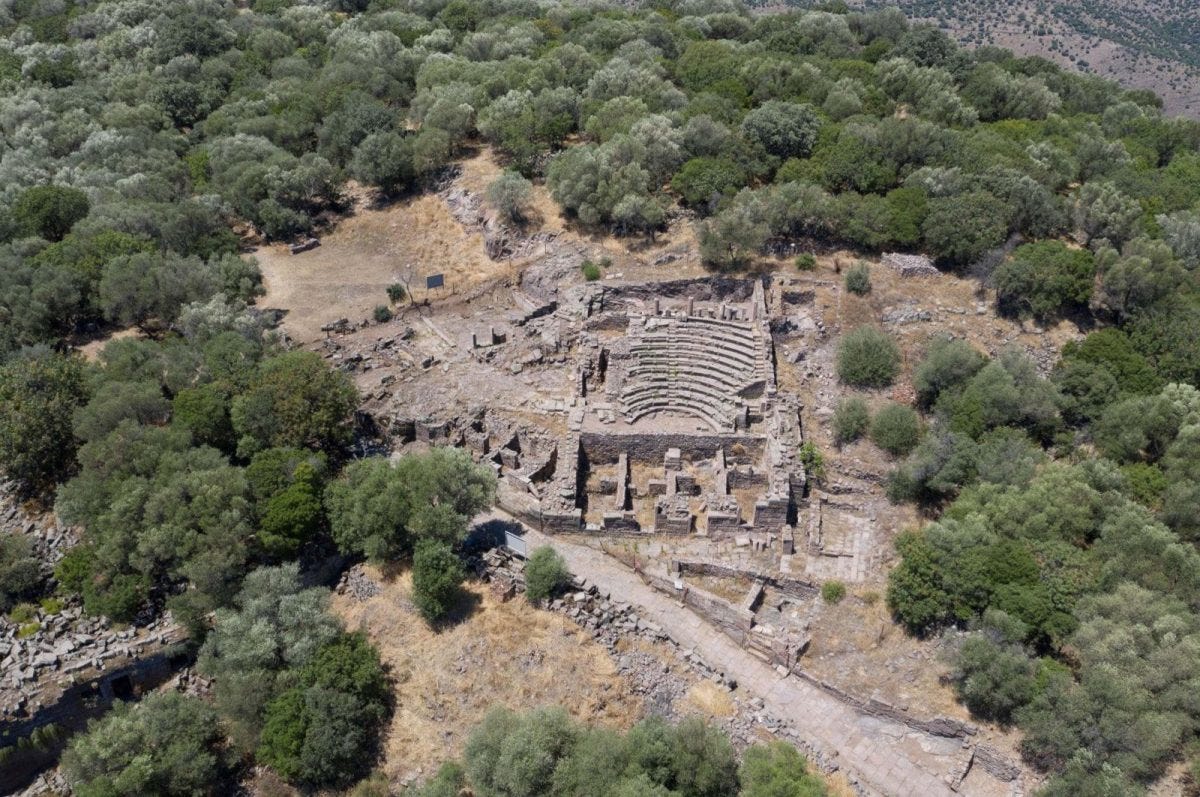The 2,200-year-old agora of the ancient city of Aigai discovered by archaeologists
Latest News
Reported by Arkeonews:
Archaeologists have uncovered an agora (city square) during excavations in the ancient city of Aigai, west of Manisa.
Aigai, located within the borders of the Yuntdağıköseler neighborhood in the Yunusemre district, is one of the 12 Aeolian cities established in western Anatolia. Archaeological excavations and research conducted at Aigai since 2004, show that the city was founded around 700 BCE. Historical records suggest that it was an important commercial center during Hellenistic times.
The 2,200-year-old agora was discovered as part of the “Heritage to the Future Project” by the General Directorate of Cultural Heritage and Museums.
Bull-head reliefs and inscriptions honoring the god Apollo were discovered on the square’s columns during the excavations, which are still ongoing in the agora, which is situated directly next to the parliament building.
The team, led by Professor Yusuf Sezgin, head of the Archaeology Department at Manisa Celal Bayar University, has been working on the site.
Sezgin emphasized the significance of the agora, describing it as the heart and center of the ancient city. Sezgin said, “This area is where all public buildings are concentrated and where people spend their daily lives. Around the square, there are columned porticos that we call ‘stoa.’ In this respect, this is a very important area. One of the symbols of Aigai is the agora building in this area. As a result of the work, we will focus particularly on the parts of the building that need restoration and conservation.”
Read more here.



